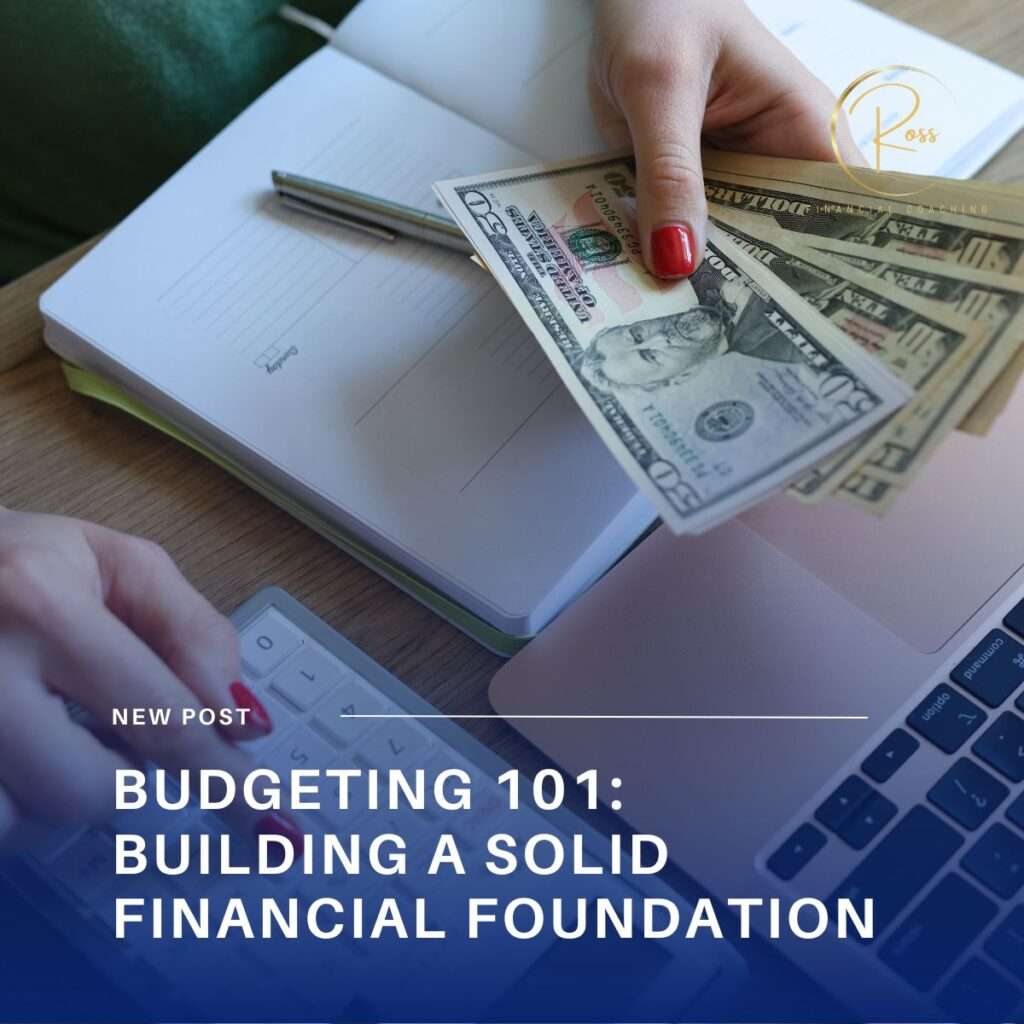
Reading Time: 8 minutes
The bank balance stares back at you, and that familiar knot forms in your stomach. “There’s never enough,” whispers a voice in your head. “People like me don’t get ahead with money.” Sound familiar? You’re not experiencing a character flaw—you’re living out a money story that was written long before you ever earned your first dollar.
Bottom Line Up Front: Your relationship with money isn’t determined by your income, your education, or your circumstances. It’s shaped by the unconscious beliefs and narratives you carry about what money means, what you deserve, and what’s possible for your financial future. The transformative news? These stories can be rewritten, and doing so is the foundation of lasting financial success.
Every financial decision you make—from avoiding investment opportunities to the anxiety you feel when spending money—stems from these deep-seated beliefs. The good news is that money mindset transformation isn’t just possible; it’s the most powerful step you can take toward financial freedom.
The Hidden Power of Your Money Story
Your money story operates like an invisible operating system, running in the background of every financial choice you make. Unlike the simplified “just think positive” advice often peddled, true money mindset transformation requires understanding the psychological foundations of how financial beliefs form and function.
Research from Harvard economist Sendhil Mullainathan and Princeton psychologist Eldar Shafir reveals something remarkable: scarcity mindset actually changes how our brains process financial decisions. When we operate from a place of perceived financial scarcity, our neural pathways literally alter, making us more likely to focus on immediate threats rather than long-term opportunities.
This isn’t about willpower or discipline—it’s about neuroscience. When scarcity dominates your financial narrative, your brain’s prefrontal cortex, responsible for strategic thinking and long-term planning, becomes less active. Meanwhile, the areas associated with stress and immediate threat response become hyperactive.
The Inheritance We Never Asked For
Most money stories aren’t consciously chosen. They’re inherited from family conversations overheard as a child, absorbed from cultural messages about “people like us,” and reinforced through personal experiences with financial stress or success. The moment someone learns that their parents fought about money, or notices their family’s tension around financial decisions, a story begins to form about what money means and what role it will play in their life.
Consider how different financial futures unfold from these inherited narratives:
- “Money doesn’t grow on trees” becomes a belief that wealth is inherently scarce
- “Rich people are greedy” creates internal conflict about financial success
- “We can’t afford that” evolves into “I don’t deserve financial abundance”
The insidious nature of these beliefs is that they feel like facts rather than stories. When someone says, “I’m not good with money,” they’re not stating an objective truth—they’re reciting a narrative that’s been reinforced through years of financial decisions made from a place of fear, scarcity, or inherited limitation.
The Science Behind Financial Mindsets
Stanford psychologist Carol Dweck’s groundbreaking research on fixed versus growth mindsets extends powerfully into financial psychology. Her studies show that people who believe their abilities can be developed outperform those who see their capabilities as fixed. This principle applies directly to money management and wealth building.
When you operate from a “fixed” money mindset, you believe your financial capacity is predetermined. Thoughts like “I’ll never be wealthy” or “I’m not the investing type” represent fixed mindset thinking. These beliefs become self-fulfilling prophecies, limiting your financial exploration and growth.
A growth mindset around money, conversely, recognizes that financial skills, wealth-building capacity, and money management abilities can all be developed. This shift from “I can’t” to “I can learn” opens up entirely new possibilities for financial transformation.
The Scarcity Trap
Research published in Psychological Science demonstrates that scarcity mindset creates a cognitive load that impairs decision-making across multiple areas of life. When someone is constantly worried about having “enough” money, their mental bandwidth becomes consumed by financial anxiety, leaving less cognitive capacity for strategic planning, creative problem-solving, and opportunity recognition.
This explains why people experiencing financial stress often make seemingly irrational financial decisions. It’s not a character failing—it’s a predictable result of operating under cognitive scarcity. The person who takes out a high-interest payday loan isn’t lacking intelligence; they’re operating from a mindset that prioritizes immediate relief over long-term strategy.
Breaking free from this cycle requires more than changing financial behaviors—it requires transforming the underlying story that creates scarcity thinking in the first place.
Identifying Your Current Money Story
The most effective approach isn’t just eliminating current subscriptions, but creating systems to prevent unconscious accumulation in the future.
The Trial Calendar System – Whenever you start a free trial, immediately calendar the end date and your cancellation decision. Set the reminder for two days before the trial ends, giving yourself time to cancel if needed.
The Monthly Subscription Review – Dedicate 15 minutes each month to reviewing all recurring charges. This catches new subscriptions quickly and reinforces your awareness of where money goes automatically.
The Annual Subscription Budget – Create a specific budget category for subscriptions and stick to it. When you’re at your limit, adding something new requires removing something else first.
The Value Decay Check – Set annual reminders to reassess long-term subscriptions. Services that seemed valuable last year might not serve your current priorities or goals.
Making Your Money Work Intentionally
Before you can rewrite your money story, you need to understand what narrative is currently running your financial life. Unlike obvious beliefs that you can articulate easily, money stories often operate at a subconscious level, revealed through patterns rather than conscious thoughts.
The Story Your Decisions Tell
Your financial behaviors are the most honest reflection of your money story. Do you:
- Avoid checking your bank account when you’re worried about the balance?
- Feel guilty or anxious when spending money on yourself?
- Procrastinate on financial planning or investment decisions?
- Immediately assume you “can’t afford” things without actually checking?
- Feel like financial success is for “other people” but not you?
Each of these patterns points to specific underlying beliefs about money, worthiness, and possibility.
The Language of Limitation
Pay attention to the automatic thoughts that arise around money. The person who consistently says “I can’t afford it” may actually be reinforcing a scarcity story, even when the expense is well within their means. Similarly, phrases like “money doesn’t buy happiness” often mask deeper discomfort with financial abundance.
These aren’t just words—they’re the vocabulary of your money story, and they shape your financial reality more than you might realize.
Emotional Archaeology
Your emotional responses to money situations reveal the deeper narrative at work. The anxiety that arises when paying bills, the excitement or fear around financial opportunities, the shame associated with debt—these emotional patterns are the fingerprints of your money story.
Rather than judging these responses, approach them with curiosity. What belief about money, security, or self-worth is creating this emotional reaction? What story would need to be true for this feeling to make sense?
The WEALTH Framework Approach
The WEALTH Framework begins with “W”—reWrite your money story—because transformation is impossible without first examining and shifting the foundational beliefs that drive financial behavior. This isn’t about positive thinking or affirmations; it’s about systematically identifying, questioning, and replacing the narratives that limit financial growth.
reWrite: The Foundation of Financial Transformation
The “reWrite” component of the WEALTH Framework recognizes that lasting financial change begins with narrative change. You can learn every budgeting technique and investment strategy available, but if your underlying money story says “people like me don’t get ahead financially,” you’ll unconsciously sabotage your own progress.
Rewriting your money story involves three essential elements:
- Recognition: Becoming consciously aware of the beliefs and narratives currently operating
- Examination: Questioning whether these beliefs serve your financial goals and well-being
- Replacement: Consciously choosing new, more empowering narratives about money and possibility
From Inherited to Intentional
The most powerful aspect of money story transformation is the shift from inherited beliefs to intentional choices. Instead of unconsciously living out financial narratives absorbed from family, culture, or past experiences, you begin consciously selecting beliefs that support your financial goals and values.
This doesn’t mean denying financial realities or pretending scarcity doesn’t exist. It means choosing stories that empower rather than limit, that create possibility rather than constraint, that support growth rather than perpetuate stagnation.
Practical Steps to Rewrite Your Financial Narrative
Step 1: The Money Story Audit
Begin by completing these sentence stems with your first, most honest responses:
- “Money is…”
- “Wealthy people are…”
- “I deserve financially…”
- “My family taught me that money…”
- “When I think about my financial future, I feel…”
Your initial responses reveal the stories currently operating in your financial life. Notice patterns, judgments, and limitations in your answers.
Step 2: Evidence vs. Story
For each limiting belief you identified, ask: “Is this objectively true, or is this a story I’ve been telling myself?” Often, what feels like unchangeable reality is actually a changeable narrative.
For instance, “I’m not good with money” becomes questionable when you examine the evidence. Have you actually tried learning money management skills? Have you given yourself permission to get better at financial planning? Or have you been operating from an assumption that your financial capacity is fixed?
Step 3: Conscious Story Creation
Rather than waiting for your money story to evolve organically, consciously choose narratives that support your financial goals:
- Replace “I can’t afford it” with “How can I afford it?” or “What would I need to do to make this possible?”
- Transform “I’m not good with money” into “I’m learning to manage money effectively”
- Shift “Money is hard to come by” to “I’m discovering new opportunities for financial growth”
Step 4: Behavioral Integration
New stories must be supported by new behaviors. If your revised money story includes “I’m capable of building wealth,” what behaviors would someone with that belief exhibit? Begin taking small actions consistent with your new narrative, allowing your behaviors to reinforce your transformed beliefs.
Step 5: Environmental Design
Surround yourself with inputs that support your new money story. This might mean:
- Following financial educators who embody growth-minded approaches to money
- Reading books that reinforce abundance thinking and financial capability
- Joining communities of people who share empowering money narratives
- Limiting exposure to media or conversations that reinforce scarcity thinking
From Transformation to Lasting Change
Money story transformation isn’t a one-time event—it’s an ongoing practice of choosing empowering narratives over limiting ones. Like developing any new skill, it requires consistency, patience, and self-compassion as you retrain decades of conditioned thinking.
The Compound Effect of Narrative Change
Just as compound interest creates exponential financial growth over time, compound narrative change creates exponential personal growth. Each time you choose an abundance-oriented thought over a scarcity-based one, each time you ask “How can I make this possible?” instead of assuming impossibility, you’re making a deposit in your financial future.
The mother who stops saying “we can’t afford that” in front of her children isn’t just changing her language—she’s potentially transforming the money stories her children will inherit. The professional who shifts from “I’m not the investing type” to “I’m learning about investing” isn’t just changing a belief—they’re opening up entirely new financial possibilities.
Integration with Financial Action
Your rewritten money story becomes powerful when it’s integrated with concrete financial strategies. The person who embraces “I’m capable of building wealth” as their new narrative will naturally be drawn to learning about budgeting, investing, and wealth-building strategies. Their behavior aligns with their belief, creating a positive reinforcement cycle.
This is why the WEALTH Framework begins with rewriting your money story before moving to other components like evaluating your path to financial freedom or aligning your finances with your dream life. Without the foundation of empowering beliefs, even the best financial strategies will struggle to take root.
Measuring Story Transformation
You’ll know your money story transformation is taking hold when:
- Financial setbacks feel like temporary challenges rather than evidence of personal inadequacy
- You naturally look for opportunities and solutions rather than focusing on obstacles and problems
- Money conversations shift from fear-based to possibility-focused
- You find yourself taking financial actions that previously felt impossible or intimidating
- Your relationship with money becomes characterized by curiosity and growth rather than anxiety and limitation
Your Financial Future Starts With Your Story
The most profound insight from decades of psychological research is this: the story you tell yourself about money and possibility becomes the blueprint for your financial reality. This isn’t metaphysical wishful thinking—it’s documented psychological fact.
When you rewrite your money story from scarcity to abundance, from limitation to possibility, from fear to empowerment, you’re not just changing your thoughts. You’re rewiring the neural pathways that drive every financial decision, opening up possibilities that were previously invisible, and laying the foundation for genuine financial transformation.
Your bank balance doesn’t determine your story—your story determines your bank balance. The question isn’t whether you’re capable of financial success; the question is whether you’re willing to rewrite the narrative that’s been limiting your financial potential.
The truth is this: You have more control over your financial future than you’ve been led to believe. It starts with the stories you choose to tell yourself about money, possibility, and what you deserve. Everything else—the strategies, the systems, the success—flows from there.
Ready to Transform Your Financial Future?
Rewriting your money story is the foundation of the WEALTH Framework, but it’s just the beginning. If you’re ready to move beyond limiting beliefs and create a comprehensive plan for financial transformation, I’d love to help you explore what’s possible.
Schedule a free discovery call to discuss how the WEALTH Framework can help you rewrite your money story and build the financial future you truly want. Together, we’ll identify the narratives that have been limiting your financial growth and create a personalized roadmap for lasting abundance.




